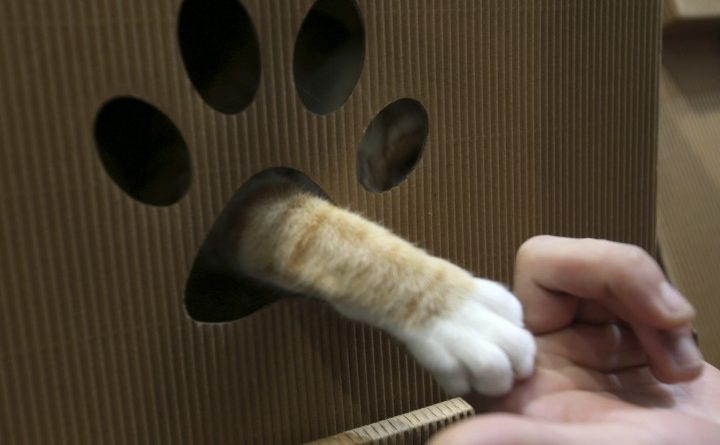‘Deceitfulness and suavity:’ Research confirms cats are hard to read
GUELPH, Ont. — Science has confirmed what many pet owners already know.
“Cats are quite hard to read,” said Georgia Mason, a behavioural biologist whose recently published paper digs into the age-old question: What is my cat thinking?
“Cats are a bit overlooked and underappreciated,” she said.
“We thought maybe it’s because they are a bit tougher to read, so let’s see what’s going on with their faces.”
Mason and her colleagues at the University of Guelph found abundant research material among the uncounted thousands of cat videos on YouTube.
They chose videos in which it was clear whether the cat was having a positive or negative experience — if it was advancing to its human, for example, or being blocked from something by a closed door. They edited each video down to a few seconds and cropped almost everything else out except for the cat’s face.
“It was hard to find videos that met our strict criteria.”
They eventually produced a list of 20 video clips. Mason’s own cats, Sylvie and Luke, both made the cut.
Then came the easy part. The team put the clips on the Internet, with a question beneath asking if the cat was happy, unhappy, or simply inscrutable.
“We got 11,000 responses in 10 days,” Mason laughs. “It was amazing.”
Most were from Canada, but 85 countries were represented.
In the end, 6,300 responses were analyzed. The average score was less than 12 out of 20 — not much better than chance.
Surprisingly, or maybe not surprisingly, loving cats made no statistical difference.
“I went into this pretty sure I was going to be great,” Mason said. “But being a cat lover is not enough.”
There were, however, a select few — about 13 per cent — who consistently scored upwards of 15 out of 20. They tended to be either female, young, or both — or were professional veterinarians.
Mason theorizes that women, for whatever reason, tend to be better at reading facial expressions. Vets simply see a lot of cats and learn to figure them out.
Apart from its intrinsic interest, the work is part of a rapidly growing field of research into animal emotion and how that is expressed, Mason said. It may help out cats as well.
Cats are almost as popular as dogs as household pets. Owners, however, seem less attached to them.
Mason points out that animal shelters report people are much more likely to turn in a cat than a dog. Cats are harder to adopt, too.
Maybe that’s because we don’t understand them as well.
“Dogs are easy to read,” said Mason. “We’ve selected them to be easy to read.
“Cats haven’t been domesticated as long. In some ways, they are less domesticated.”
As a result, she suggests, “People just get rid of their cats more easily.”
To help create a more canine bond, one of Mason’s colleagues is using the findings to develop a training tool to help prospective cat people understand what their companions are telling them.
“You can say … ‘Look at the tilt of the eyes. Look at the gap between the nose and the mouth.’”
No training tool is ever likely to completely unlock their mystery, aptly expressed by the poet T.S. Eliot:
“There’s no one like Macavity, There never was a Cat of such deceitfulness and suavity.”
On the web: Georgia Mason’s survey can be found at http://bit.ly/34MoOSk
— By Bob Weber in Edmonton. Follow @row1960 on Twitter
The Canadian Press. © The Canadian Press, 20XX. All rights reserved. This material may not be published, broadcast, rewritten or redistributed.




